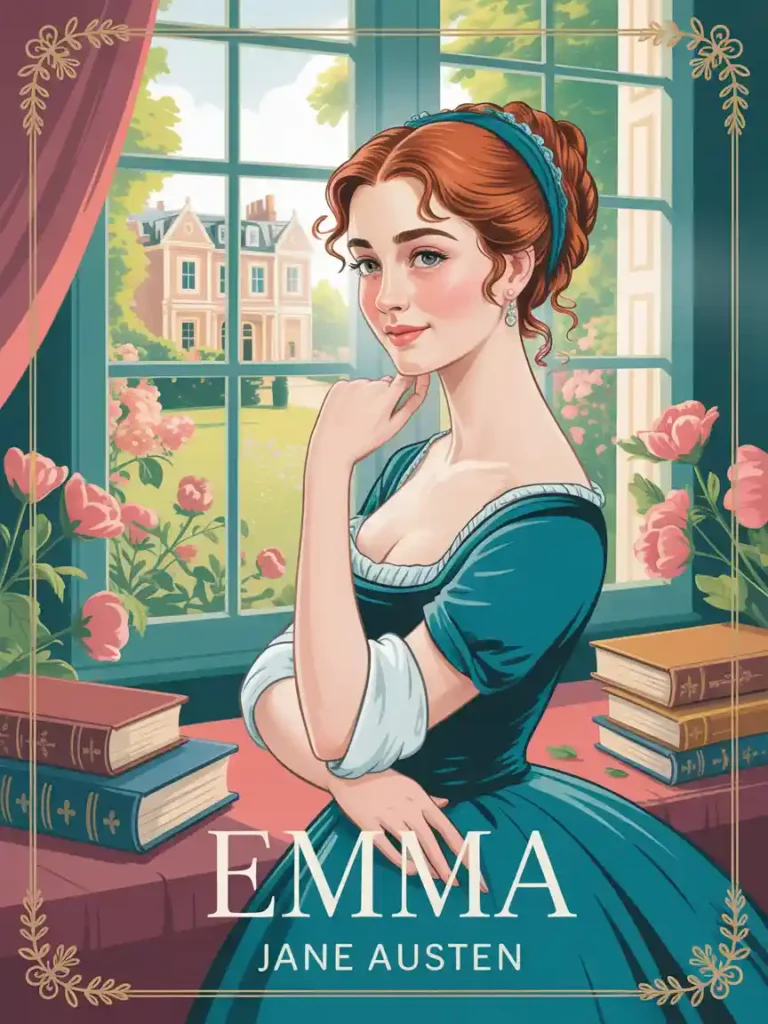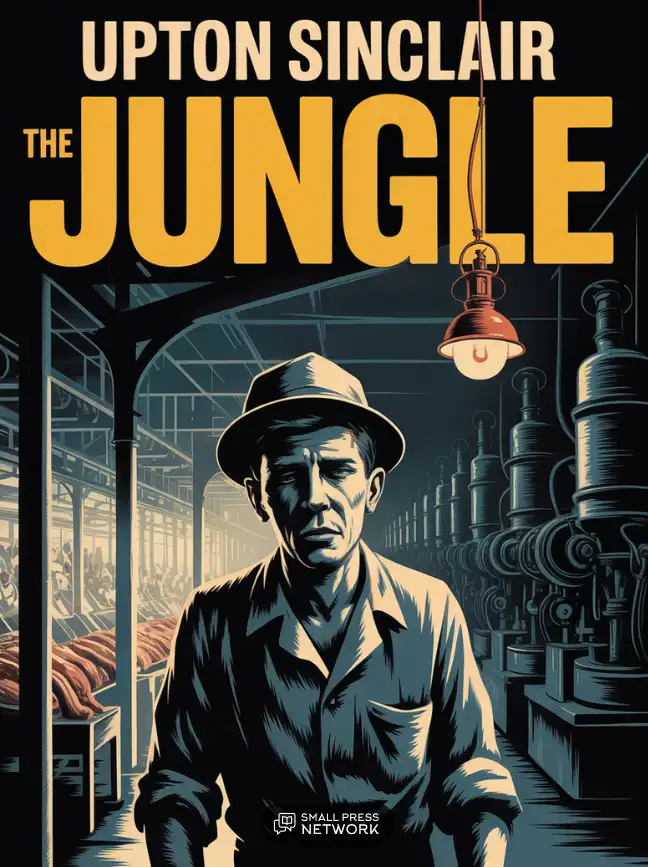Chapter II.
Mr.Weston was a native of Highbury, and born of a re spectable family,
which for the last two or three generations had been rising into gentility and
property. He had received a good education, but on succeeding early in life
to a small independence, had become indisposed for any of the more
homely pursuits in which his brothers were engaged; and had satisfied an
active cheerful mind and social temper by entering into the militia of his
county, then embodied.
Captain Weston was a general favourite; and when the chances of his
military life had introduced him to Miss Churchill, of a great Yorkshire
family, and Miss Churchill fell in love with him, nobody was surprised
except her brother and his wife, who had never seen him, and who were full
of pride and importance, which the connection would offend.
Miss Churchill, however, being of age, and with the full command of her
fortune—though her fortune bore no proportion to the family-estate—was
not to be dissuaded from the marriage, and it took place to the infinite
mortification of Mr. and Mrs. Churchill, who threw her off with due
decorum. It was an unsuitable connection, and did not produce much
happiness. Mrs. Weston ought to have found more in it, for she had a
husband whose warm heart and sweet temper made him think every thing
due to her in return for the great goodness of being in love with him; but
though she had one sort of spirit, she had not the best. She had resolution
enough to pursue her own will in spite of her brother, but not enough to
refrain from unreasonable regrets at that brother’s unreasonable anger, nor
from missing the luxuries of her former home. They lived beyond their
income, but still it was nothing in comparison of Enscombe: she did not
cease to love her husband; but she wanted at once to be the wife of Captain
Weston, and Miss Churchill of Enscombe.
Captain Weston, who had been considered, especially by the Churchills,
as making such an amazing match, was proved to have much the worst of
the bargain; for when his wife died, after a three years’ marriage, he was
rather a poorer man than at first, and with a child to maintain. From the
expense of the child, however, he was soon relieved. The boy had, with the
additional softening claim of a lingering illness of his mother’s, been the
means of a sort of reconciliation; and Mr. and Mrs. Churchill, having no
children of their own, nor any other young creature of equal kindred to care
for, offered to take the whole charge of the little Frank soon after her
decease. Some scruples and some reluctance the widower-father may be
supposed to have felt; but as they were overcome by other considerations,
the child was given up to the care and the wealth of the Churchills, and he
had only his own comfort to seek, and his own situation to improve as he
could.
A complete change of life became desirable. He quitted the militia and
engaged in trade, having brothers already established in a good way in
London, which afforded him a favourable opening. It was a concern which
brought just employment enough. He had still a small house in Highbury,
where most of his leisure days were spent; and between useful occupation
and the pleasures of society, the next eighteen or twenty years of his life
passed cheerfully away. He had, by that time, realised an easy competence
—enough to secure the purchase of a little estate adjoining Highbury, which
he had always longed for—enough to marry a woman as portionless even as
Miss Taylor, and to live according to the wishes of his own friendly and
social disposition.
It was now some time since Miss Taylor had begun to influence his
schemes; but as it was not the tyrannic influence of youth on youth, it had
not shaken his determination of never settling till he could purchase
Randalls, and the sale of Randalls was long looked forward to; but he had
gone steadily on, with these objects in view, till they were accomplished.
He had made his fortune, bought his house, and obtained his wife; and was
beginning a new period of existence with every probability of greater
happiness than in any yet passed through. He had never been an unhappy
man; his own temper had secured him from that, even in his first marriage;
but his second must show him how delightful a well-judging and truly
amiable woman could be, and must give him the pleasantest proof of its
being a great deal better to choose than to be chosen, to excite gratitude
than to feel it.
He had only himself to please in his choice: his fortune was his own; for
as to Frank, it was more than being tacitly brought up as his uncle’s heir, it
had become so avowed an adoption as to have him assume the name of
Churchill on coming of age. It was most unlikely, therefore, that he should
ever want his father’s assistance. His father had no apprehension of it. The
aunt was a capricious woman, and governed her husband entirely; but it was
not in Mr. Weston’s nature to imagine that any caprice could be strong
enough to affect one so dear, and, as he believed, so deservedly dear. He
saw his son every year in London, and was proud of him; and his fond
report of him as a very fine young man had made Highbury feel a sort of
pride in him too. He was looked on as sufficiently belonging to the place to
make his merits and prospects a kind of common concern.
Mr. Frank Churchill was one of the boasts of Highbury, and a lively
curiosity to see him prevailed, though the compliment was so little returned
that he had never been there in his life. His coming to visit his father had
been often talked of but never achieved.
Now, upon his father’s marriage, it was very generally proposed, as a
most proper attention, that the visit should take place. There was not a
dissentient voice on the subject, either when Mrs. Perry drank tea with Mrs.
and Miss Bates, or when Mrs. and Miss Bates returned the visit. Now was
the time for Mr. Frank Churchill to come among them; and the hope
strengthened when it was understood that he had written to his new mother
on the occasion. For a few days every morning visit in Highbury included
some mention of the handsome letter Mrs. Weston had received. “I suppose
you have heard of the handsome letter Mr. Frank Churchill had written to
Mrs. Weston? I understood it was a very handsome letter, indeed. Mr.
Woodhouse told me of it. Mr. Woodhouse saw the letter, and he says he
never saw such a handsome letter in his life.”
It was, indeed, a highly-prized letter. Mrs. Weston had, of course, formed
a very favourable idea of the young man; and such a pleasing attention was
an irresistible proof of his great good sense, and a most welcome addition to
every source and every expression of congratulation which her marriage
had already secured. She felt herself a most fortunate woman; and she had
lived long enough to know how fortunate she might well be thought, where
the only regret was for a partial separation from friends, whose friendship
for her had never cooled, and who could ill bear to part with her.
She knew that at times she must be missed; and could not think, without
pain, of Emma’s losing a single pleasure, or suffering an hour’s ennui, from
the want of her companionableness: but dear Emma was of no feeble
character; she was more equal to her situation than most girls would have
been, and had sense, and energy, and spirits that might be hoped would bear
her well and happily through its little difficulties and privations. And then
there was such comfort in the very easy distance of Randalls from Hartfield,
so convenient for even solitary female walking, and in Mr. Weston’s
disposition and circumstances, which would make the approaching season
no hinderance to their spending half the evenings in the week together.
Her situation was altogether the subject of hours of gratitude to Mrs.
Weston, and of moments only of regret; and her satisfaction—her more than
satisfaction—her cheerful enjoyment was so just and so apparent, that
Emma, well as she knew her father, was sometimes taken by surprise at his
being still able to pity “poor Miss Taylor,” when they left her at Randalls in
the centre of every domestic comfort, or saw her go away in the evening
attended by her pleasant husband to a carriage of her own. But never did
she go without Mr. Woodhouse’s giving a gentle sigh, and saying,—“Ah,
poor Miss Taylor! She would be very glad to stay.”
There was no recovering Miss Taylor—nor much likelihood of ceasing to
pity her; but a few weeks brought some alleviation to Mr. Woodhouse. The
compliments of his neighbours were over: he was no longer teased by being
wished joy of so sorrowful an event; and the wedding-cake, which had been
a great distress to him, was all ate up. His own stomach could bear nothing
rich, and he could never believe other people to be different from himself.
What was unwholesome to him, he regarded as unfit for any body; and he
had, therefore, earnestly tried to dissuade them from having any wedding-
cake at all; and when that proved vain, as earnestly tried to prevent any
body’s eating it. He had been at the pains of consulting Mr. Perry, the
apothecary, on the subject. Mr. Perry was an intelligent, gentlemanlike man,
whose frequent visits were one of the comforts of Mr. Woodhouse’s life;
and, upon being applied to, he could not but acknowledge (though it seemed
rather against the bias of inclination), that wedding-cake might certainly
disagree with many—perhaps with most people, unless taken moderately.
With such an opinion, in confirmation of his own, Mr. Woodhouse hoped to
influence every visiter of the new-married pair; but still the cake was eaten;
and there was no rest for his benevolent nerves till it was all gone.
There was a strange rumour in Highbury of all the little Perrys being seen
with a slice of Mrs. Weston’s wedding-cake in their hands; but Mr.
Woodhouse would never believe it.





